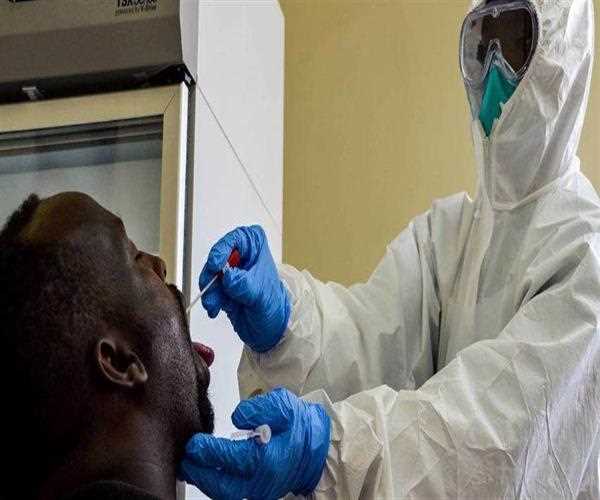
28-May-2020
Refugees Are To Be Protected In Corona Pandemic
Maybe the best wellbeing intercessions in the fight against COVID-19 so far have been conducted: social separating and improved cleanliness, particularly hand-washing. What about the refugees in the corona pandemic?
For the world's 70 million uprooted individuals – particularly the millions living in squeezed camps and casual settlements – such propensities can be for all intents and purposes unimaginable.
Add to that restricted access to social insurance benefits, an absence of dependable data about the infection, and governments' attention on ensuring their own residents, and the dangers of pulverizing COVID-19 episodes among dislodged populaces are rising quick.
Outcasts International as of late sounded the alert about these dangers, and offered reasonable suggestions to help alleviate them, for example, diminishing congestion and improving cleanliness in displaced person camps, ending the expelling of refuge searchers, and improving correspondence. To accomplish these goals, governments would do well to draw exercises from Uganda, a worldwide innovator in outcast insurance.
Uganda, a landlocked nation of 43 million individuals, has taken in 1.36 million outcasts, making it the world's third-biggest host nation. Most fled from clashes in neighboring nations, particularly in South Sudan and the Democratic Republic of the Congo. Haven searchers from the two nations – totaling 985,512 from the previous, and 271,967 from the last up until now – are conceded displaced person status in Uganda on a by all appearances premise.
Haven searchers from different nations, including Burundi (36,677 exiles), experience status-assurance interviews. About 71,000 displaced people – from Ethiopia, Eritrea, Rwanda, Somalia, and Sudan – have lived estranged abroad in Uganda for three decades.
In spite of its enormous outcast populace, none of Uganda's 139 affirmed instances of COVID-19 (as of May 14, 2020) happened inside displaced person settlements. This is a demonstration of the nation's sympathetic, manageable, and forward-looking exile strategy, which gives dislodged individuals the assets and bolster they have to make a home and a living.
Uganda's prosperity starts with positive legitimate and strategy structures. Its 2006 Refugee Act and the 2010 Refugees Regulations ensure fundamental rights to exiles, including the rights to move unreservedly, work and start a business, own property, and access open administrations like training and social insurance.
READ HERE MORE : What If China Ultimately Clashes With India ?
The Comprehensive Refugee Response Framework, propelled in 2017, gives an outline to maintaining those rights internationally. From crisis reaction to continuous necessities and independence, the CRRF covers each progression of an exile's understanding from the hour of dislodging until a tough arrangement (nearby reconciliation, resettlement, or willful repatriation) is found. It in this manner adjusts its way to deal with the New York Declaration for Refugees and Migrants, embraced by the United Nations General Assembly in 2016.
A key segment in executing the CRRF is the Refugee and Host Population Empowerment (ReHoPE) Strategic Framework, which centers around advancing strength and independence among displaced people and host networks through vocation activities, solid foundations, and interest in aptitudes improvement.
To stay away from repetition and guarantee satisfactory financing, ReHoPE underlines coordination among vital on-screen characters, including the UN, the World Bank, and a few cross-sectoral accomplices.
In Uganda, evacuees have been incorporated into the nation's advancement plan at all levels. Uganda's National Development Plan II, propelled in 2015, incorporates the Settlement Transformation Agenda, which advances financial improvement in territories facilitating exiles and gives the premise of a non-place to stay strategy for displaced people.
While evacuees in Bangladesh, Greece, and Syria commonly live in packed camps, which rank among the world's most thickly populated regions, displaced people in Uganda get a plot of land for lodging and development close to neighborhood networks. About 92% of Uganda's displaced people live in settlements close by local Ugandans, while the remaining 8% live in urban focuses.
At the 2016 Leaders' Summit on Refugees, Uganda focused on maintaining its settlement approach, and growing displaced people's entrance to instruction, work, and social administrations. It has since gained noteworthy ground toward satisfying its guarantees.
Since most displaced people are amassed in 12 of Uganda's 121 locale, absolute assistance limit has been expanded in certain regions. In 2018, the Ministry of Education propelled an Education Response Plan – a three-year activity to guarantee adequate school limit. Coordinated reaction plans for wellbeing, water, and the earth before long followed.
Undoubtedly, Uganda's displaced person the executives isn't liberated from debate, including claims of defilement and misrepresentation. In any case, the specialists are helping out the UN High Commissioner for Refugees and the World Food Program to examine worries about the exactness and unwavering quality of information utilized for evacuee programming, raising support, and help. In 2018, Uganda's administration started to check exiles utilizing UNHCR's biometric frameworks.
Uprooted populaces are regularly thought to speak to a difficulty, with governments compelled to pick between securing their own populaces and ensuring evacuees and haven searchers.
Uganda has demonstrated this is a bogus decision. With long haul arranging and a multi-sectoral approach, governments can guarantee that displaced people and their host networks exist together calmly, prosperously, and healthy.

Content Writer/Journalist
I am a content writter !
Join Our Newsletter
Subscribe to our newsletter to receive emails about new views posts, releases and updates.
Copyright 2010 - 2026 MindStick Software Pvt. Ltd. All Rights Reserved Privacy Policy | Terms & Conditions | Cookie Policy